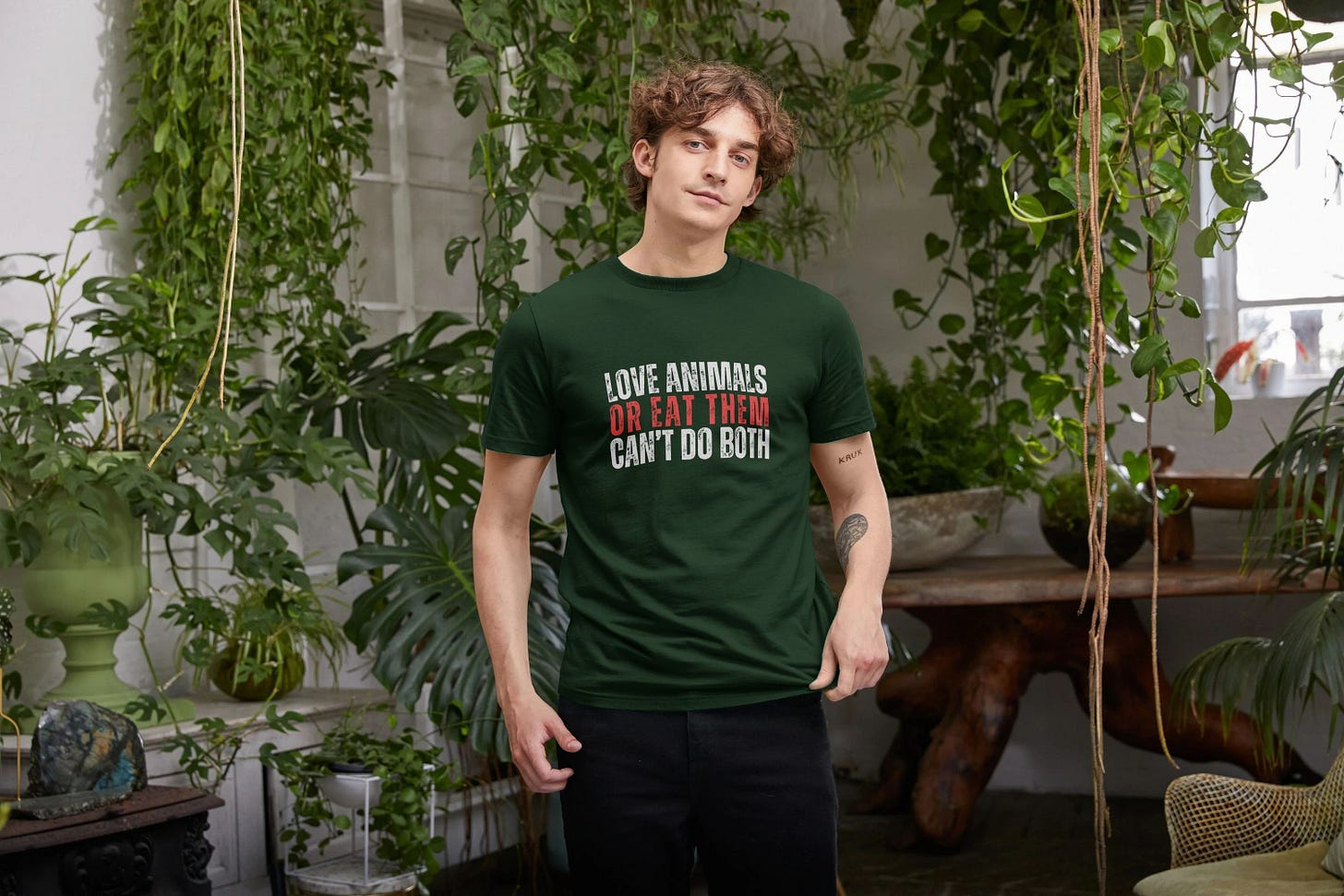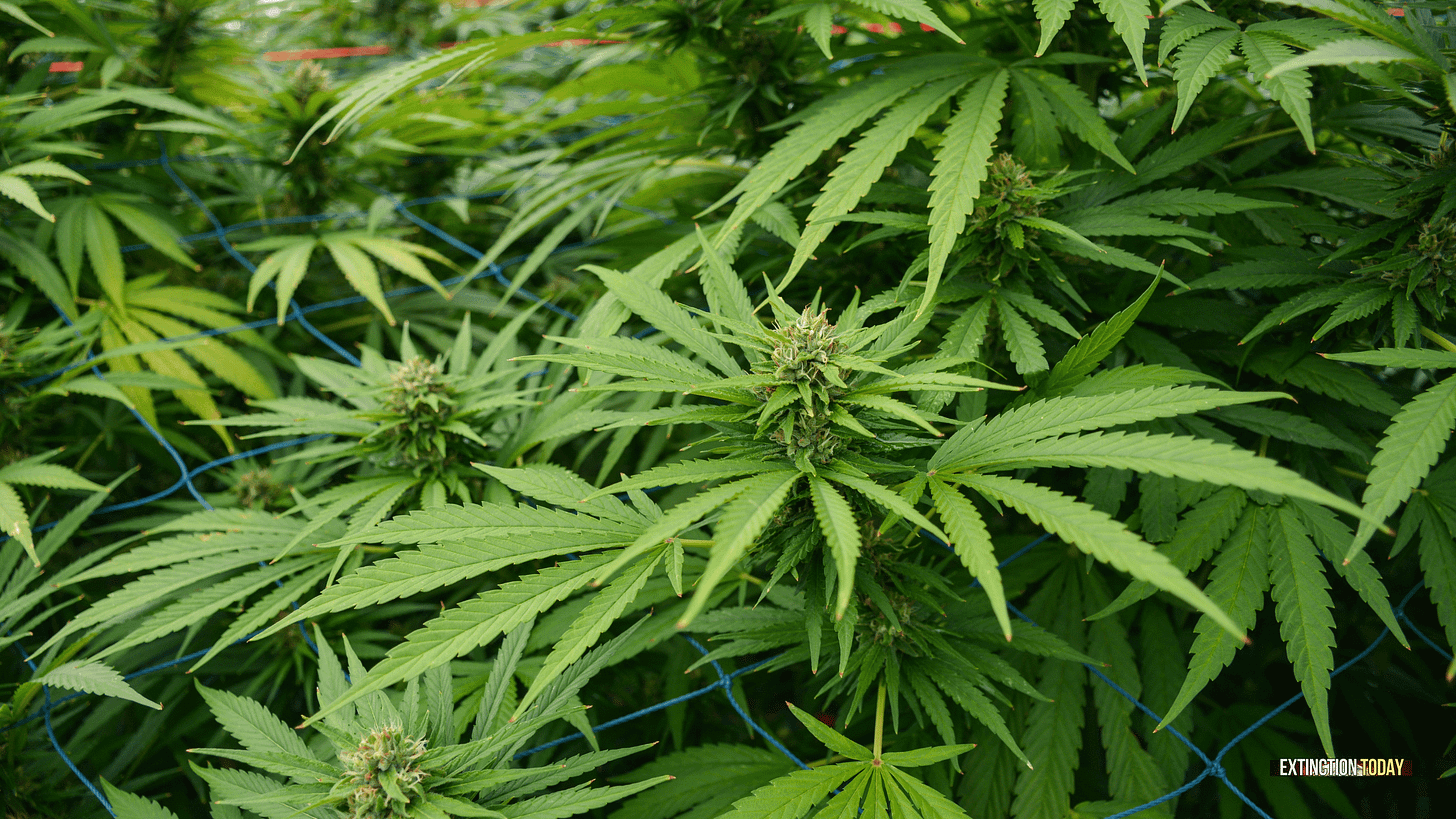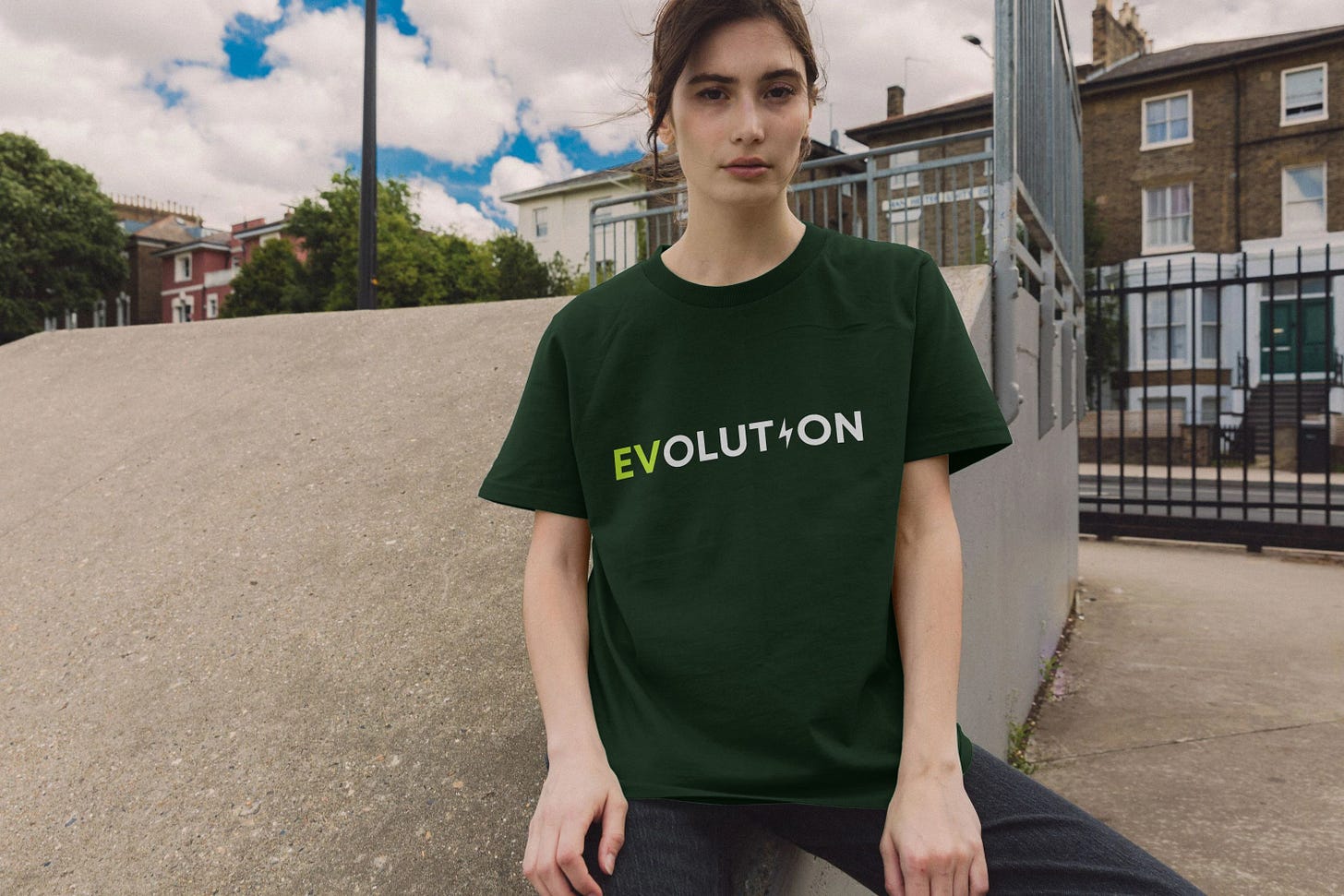'Vegan' Clothes Are Killing Wildlife
If clothing contains plastic, it shouldn't be labelled vegan
Making clothes out of recycled plastic might have seemed a good idea as the fashion industry sought to become more sustainable. But it's harming the environment. It's harming animals. Humans, too.
This seriously undermines the 'vegan fashion' tag and brings into question accreditations like 'Peta-approved' and B Corp.
Why? Because at the heart of veganism is the prevention of any kind of suffering to animals. The Vegan Society defines veganism as "a philosophy and way of living which seeks to exclude—as far as is possible and practicable—all forms of exploitation of, and cruelty to, animals."
So why might recycled plastic not be vegan? Used in a closed-loop recycling system, for long-lasting items like furniture, for example, recycling is a sensible way of responding to plastic pollution.
But clothing is a whole different thing. We wash clothing. And when we wash clothing containing oil-based materials like elastane, spandex, polyester, nylon - and recycled plastic - we release microfibres into the water system.
Microfibres = Cruelty
Once in the water, microfibres are ingested by organisms and small creatures, which are then consumed by larger animals.
Microfibres can cause physical harm to wildlife by causing internal blockages and injuries to the digestive system.
Ingesting microfibres can lead to malnutrition and decreased energy levels, affecting growth and survival.
Toxins from the microfibres can leach into the tissues of animals, disrupting reproductive health and physiological functions.
Does this sound like cruelty to animals? Indirectly, of course, but surely it has to be?
So is recycled plastic in clothing actually vegan? We need to have a serious conversation about this.
Is It Really Possible To Be 100% Vegan in Fashion?
I appreciate the difficulty. Elastane, for example, adds elasticity to a product, particularly socks and waistbands, and such benefits can’t easily be replicated with organic, biodegradable fabrics.
Nevertheless, this and similar substances still pollute the environment when washed or discarded. It’s also possible to blend such things as natural rubber and organic cotton to produce stretchy material - and you'll see from the list below that there is a wealth of alternative materials now available.
In a Greenpeace report of 2023, Dr. Therese Karlsson, Science Advisor with the International Pollutants Elimination Network (IPEN), reminded us:
“Plastics are made with toxic chemicals, and these chemicals don’t simply go away when plastics are recycled.
"The science clearly shows that plastic recycling is a toxic endeavour with threats to our health and the environment all along the recycling stream.
"Simply put, plastic poisons the circular economy and our bodies, and pollutes air, water, and food. We should not recycle plastics that contain toxic chemicals.”
To give some credit to the fashion industry, the realisation that using recycled plastic was a bad thing, is starting to dawn on people. See this article by The Sustainable Fashion Forum, for instance.
But countless 'Vegan Fashion' outlets are still singing their own ethical praises while selling items containing plastic - sometimes not even recycled.
The debate needs to be had, the question needs to be asked: Should plastic clothing products still be classed as vegan?
What Materials Are Vegan and Plastic-Free?
Look out for these textiles that are vegan, plastic-free, ethical and sustainable:
Organic Cotton: Grown without harmful chemicals, with minimal water use, and even improves the soil.
Recycled Cotton: Produced using post-industrial or post-consumer waste.
Linen: A durable material that becomes softer and stronger with each use.
Hemp: Grows without any use of pesticides or chemical fertilisers, and is completely biodegradable.
Bamboo: Look for organic sustainably sourced bamboo fabric, as bamboo rayon / viscose uses harmful chemicals.
Tencel: An elastane alternative, made from wood-pulp cellulose, this is one of the most sustainable fibres.
Lyocell: A soft fibre also made from wood pulp, usually of eucalyptus trees.
Modal: A variety of rayon, this is made from the renewable fibre of beech trees.
Seaweed: Dried seaweed is crushed into cellulose fibre to make a variety of textiles, known as SeaCell.
Cork: Sustainably harvested by shaving away bark from cork oak - which actually extends the tree's life.
Soybeans: Also known as vegetable cashmere, soy fabric is made from a byproduct of soybean processing.
Mirum: A plastic-free vegan leather made from plant oils and waxes.
Lunaform: A new fabric made from the nurturing of microorganisms in a nutrient-rich environment.
Ramie: A silk replacement made from a nettle plant.
You may also see reference to plant-based leathers, made from apples, pineapples, mushrooms, corn and more.
Most of these are not 100% plastic-free - but they're getting there.
Where Can You Buy Plastic-Free Clothing?
In seeking to provide people with guides to ethical, vegan, plastic-free fashion brands, I have faced a real battle, for the reasons already outlined.
I was so affected by this that I launched my own GreenGreenGreen clothing range on this website, teaming up with Teemill, an ethical print-on-demand company based on the Isle of Wight.
Using only 100% organic cotton, all their print-on-demand clothing is sustainable, ethical, plastic-free, vegan, cruelty-free and made with renewable energy.
It CAN be done. Others - especially so-called vegan fashion brands - should look and learn.








